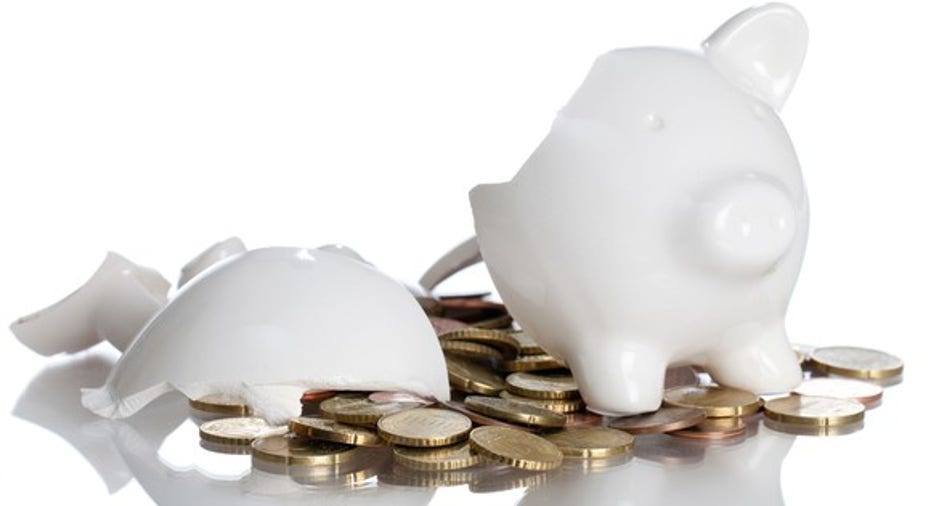The True Cost of Cashing Out Your Retirement Account

According to Fidelity Investments, you need to have saved at least 10 times your final salary by age 67 to cover your retirement needs. That's a tall order, and one that makes every cent count.
Image source: Getty Images.
When you save for retirement in a tax-favored account, such as a 401(k) or IRA, there are always a set of rules you must follow in order for those types of accounts to retain their tax-deferred status. And once your money is outside of that tax shelter, you lose a savings advantage of having your money grow and compound tax-free.
The government caps how much you can put into tax-advantaged retirement accounts on a yearly basis, and if you don't contribute for a specific year, that's one year less that you can save, forever. Unlike a savings account, where you can put in a certain amount, then put in more next year to catch up, once you miss the contribution deadline for a retirement account, you can't make up for it some other time.
Meanwhile, unless you are in a position where you can save large amounts of cash, most people need their money to work for them as well. That's where the power of time and compounding come in. You not only need consistent savings, but you need time and growth on your side. And every time you cash out your retirement savings, even small amounts, you lose out on both.
What happens when you cash out
Assuming you aren't yet 59 1/2 and don't qualify for an early withdrawal exception, when you take money out of a tax-deferred retirement account, you will generally owe ordinary income taxes and you will be hit with a 10% penalty.
For example, let's say you're leaving your job and have $5,000 in your 401(k). If you decide to cash out now, you'd be left with about $3,750 after taxes and penalty (assuming a 15% tax bracket).
But that's not all. You also lose out on years of tax-free compounding growth. If you had instead rolled that money over to an IRA and invested it and let it grow over the next 35 years, earning a 6% return, you could have had about $38,000.
How to avoid some common cash-out mistakes
People cash out retirement accounts for many reasons. But don't let these be the reasons why.
- Build a cash reserve large enough to cover at least six months' worth of non-discretionary living expenses so you aren't in a position to raid your retirement account when an unexpected expense comes your way.
- If you take a loan from your 401(k), keep in mind that if you leave the company before it's paid back, you will often have an expedited repayment schedule. And failing to pay it back will turn that "loan" into a distribution instead.
- If you're leaving your job and plan to roll your money over to an IRA, it's far easier to do a direct transfer. But if you find yourself doing an indirect transfer, make sure you know the rules. Because if you get that wrong, the IRS will once again deem that as a distribution and not a rollover.
Money that has been untouched by taxes is pretty rare. And yet, that's exactly the privilege you are afforded when you save in a tax-sheltered retirement account. Ultimately, when you take money out of your retirement savings, you aren't just losing the amount that you're withdrawing, you're losing the future growth of that money, and that's the true cost of cashing out early.
The $16,122 Social Security bonus most retirees completely overlook If you're like most Americans, you're a few years (or more) behind on your retirement savings. But a handful of little-known "Social Security secrets" could help ensure a boost in your retirement income. For example: one easy trick could pay you as much as $16,122 more... each year! Once you learn how to maximize your Social Security benefits, we think you could retire confidently with the peace of mind we're all after.Simply click here to discover how to learn more about these strategies.
The Motley Fool has a disclosure policy.



















